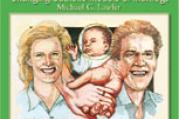Click here if you don’t see subscription options






From the President of Bethlehem University
I read with great interest your editorial Saying No to Israel (3/5). It is not clear that such enormous amounts of aid to Israel benefit the security of anyone in the areaPalestinians or Israelis. A just and honorable peace is the only real security. I find myself thinking that the investment of the $5.5 billion referred to in your editorial in the Palestinian Territories for infrastructure development, economic development, social services and education would be a remarkable step toward peace, stability and safety for all. When there is real hope that one can live free of occupation, with a decent job and a reasonable life for one’s family, there is a strong basis for peace.
I have read polls demonstrating that the vast majority of Palestinians and Israelis support a peace with justice. The situation here cries out for an honorable solution. The energy for peace is here. I see it every day in the faculty, staff and students of Bethlehem University. But I also see the extreme frustration that results from endless peace talks while the economy declines, freedom of movement is restricted, and unemployment and underemployment increase. The status quo continues the suffering of Palestinians, whose standard of living is about one-tenth that of Israelis. No one denies that Palestinian society faces problems as it struggles toward statehood. Some of the problems are caused by the restrictions the years of occupation placed on the freedom of Palestinians to organize themselves and their lives.
Our 2,000 students, with faculty and staff, make tremendous sacrifices to participate in the excellent educational programs of Bethlehem University. Newly barricaded roads, new check points, closures and severe economic hardships present great challenges. Some students travel two hours in each direction every day at a transportation cost that, because of road closures, is higher than the tuition itself. Members of the university community have had their houses destroyed, and their children live in fear of the Israeli tank, rocket and high-caliber machine gun fire on Beit Jala and Beit Sahour.
On March 2, 2001, Cardinal Francis Arinze, the president of the Pontifical Council for Interreligious Dialogue, spoke at Bethlehem University, encouraging our efforts to live together and to engage in dialogue between Muslims and Christians. He noted that politicians at times attempt, for their own purposes, to promote tensions or disharmony between the two religious groups. Sadly, this negative dimension can also be found in the work of some journalists.
Come and see for yourselves, if you can. Read accounts in the English language Palestinian weekly Jerusalem Times and the English edition of the Israeli daily Ha’aretz. (The latter is available on the Internet.) Don’t stereotype us. Don’t accept facile slogans blaming the Palestinians for being under occupation. I hope you and your readers will stay informed about our situation and support us as much as possible in the quest for peace and normal life.
Vincent Malham, F.S.C.




